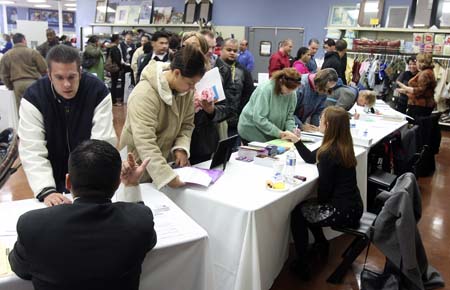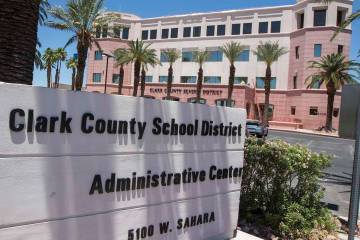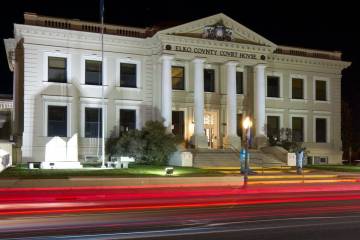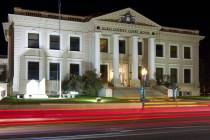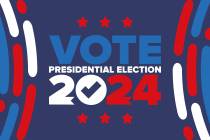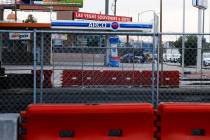Jobless tax rate retained to keep federal funds coming in
CARSON CITY — Nevada’s unemployment tax rate will be kept at 1.33 percent in 2010, although the state likely will pay out nearly $1 billion more in benefits than it receives in taxes during the year, a top state jobs official said today.
Gov. Jim Gibbons immediately issued an emergency proclamation putting the tax into effect to make sure the state qualifies for federal loans to keep the checks coming to the unemployed.
Nevada Employment Security Division Administrator Cindy Jones accepted the recommendation made by the Employment Security Council in October to keep the same tax rate because an increase would be a hardship for employers already suffering through a major recession. The council is a group of business people who advise Jones.
She said her agency already has borrowed $60 million from the federal government to keep paying benefits this year and must continue to borrow more, likely close to $1 billion, in 2010.
But Jones said 44 states must borrow from the federal government because of falling trust fund balances, and their combined borrowing might reach $90 billion.
Nevada’s unemployment rate of 13 percent is second highest in the nation and the highest in the state in more than 30 years. Economists predicted in October that the rate will average 14.4 percent in 2010.
Jones said that ultimately businesses must pay back the loan through higher unemployment taxes. An additional tax probably will be imposed by the Legislature in 2011 to pay off the loan.
The state’s unemployment trust fund was only $60 million on Sept. 30 and Jones anticipates it will be $827.9 million in the red by Sept. 30.
This year, the Employment Security Division will pay out $1 billion while collecting only $430 million in taxes.
Even if the tax rate had been increased to 4.33 percent on the average, not enough money would have been raised to cover the deficit.
The 1.33 percent average tax is paid by employers on the first $27,000 of each employee’s wages. Rates paid by individual companies vary, from 0.25 percent to 5.4 percent, depending on how frequently they lay off workers.
Daniel Burns, Gibbons’ communications director, said the governor issued an emergency regulation late today that put the 2010 tax rate into effect.
The regulation had to be filed with the secretary of state before Jan. 1 or the U.S. Department of Labor could refuse to grant Nevada loans to continue to make payments, Jones said last week.
Gibbons had been critical of the Legislature’s Committee to Review Regulations, which refused in November to pre-approve a regulation setting the tax rate because Jones had not yet conducted a final hearing, which was held today.
Legislators at the time said that instead of their pre-approving the regulation before Jones’ meeting, Gibbons should issue an emergency regulation, which remains in effect for 120 days. Then in coming weeks, they could review the emergency regulation and make it permanent. No such meeting had been scheduled as of today.
“The governor had to do what the Legislature refused to do,” Burns said. “The Legislature’s inaction has been fixed.”
He added there will be no disruption in the paying of unemployment benefits or securing federal loans.
Contact Capital Bureau Chief Ed Vogel at evogel@reviewjournal.com or 775-687-3901.



